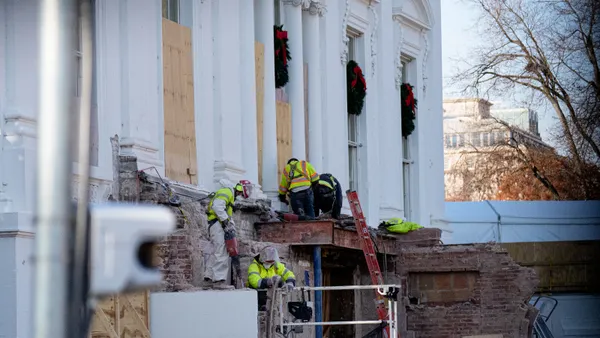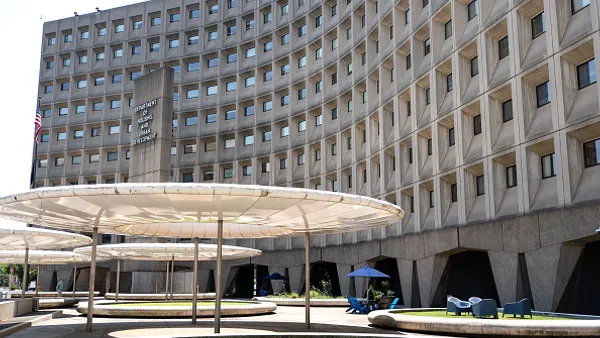Dive Brief:
- California lawmakers are pushing to extend a bill that reduces the possibility of lengthy legal battles over the environmental impact of projects that cost more than $100 million, according to The Los Angeles Times.
- The measure caps the length of environment-related lawsuits at nine months by fast-tracking California Environmental Quality Act cases through the court system. If approved, bill SB 734 would accelerate construction of two "megaprojects" in Hollywood by three years.
- The bill was first passed in 2011, with six projects — such as Apple's Cupertino, CA, spaceship campus and the Golden State Warriors new arena — qualifying for the legal fast-track in those five years. However, none of those projects needed to use the fast-track capabilities from the measure, as they haven't yet faced any lengthy environmental-related lawsuits.
Dive Insight:
When lawmakers first passed the bill in 2011, they said they aimed to move "environmentally friendly mega-projects" forward to create an economic boon for California, according to the Times. Legislators are trying to pass the bill before the end of the legislative session in August.
Advocates of the measure point to lengthy legal battles that can tie cases up in court for years — and keep developments from suffering from the often criticized CEQA. On the other hand, environmental groups oppose the measure, as they have said it can lead to the failure to properly investigate the environmental impact of megaprojects. California's Judicial Council has also come out in opposition to extending the bill, as they oppose the preferential treatment it gives cases involving massive developments.
One proponent of the measure — the Golden State Warriors — have said it allows them to avoid the threat of opponents of the new arena, the Mission Bay Alliance, keeping the project tied up in legal battles for years. The Warriors arena could be the first project to utilize the bill's fast-track provisions, according to The Times.
In January, the Mission Bay Alliance filed a lawsuit in an attempt to stop the development of the new $ 1 billion NBA arena, as they claimed it violated the CEQA and failed to address traffic, air quality and noise concerns. However, last month, a San Francisco Superior Court judge ruled that there was no need for further environmental review of the project, leaving only one legal challenge left for the team to overcome.
The Alliance's previous lawsuits resulted in the team pushing back the opening of the arena by one year. In October, the Warriors selected the joint venture of Clark Construction and Mortenson to build the arena, which team officials said they expected to be complete in time for the 2019 NBA season.












